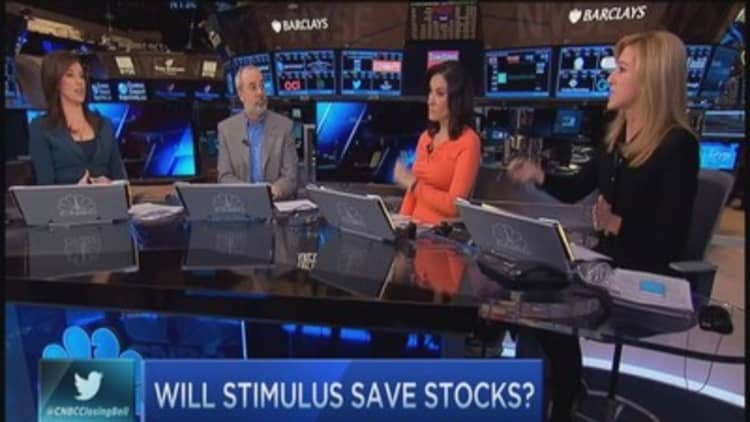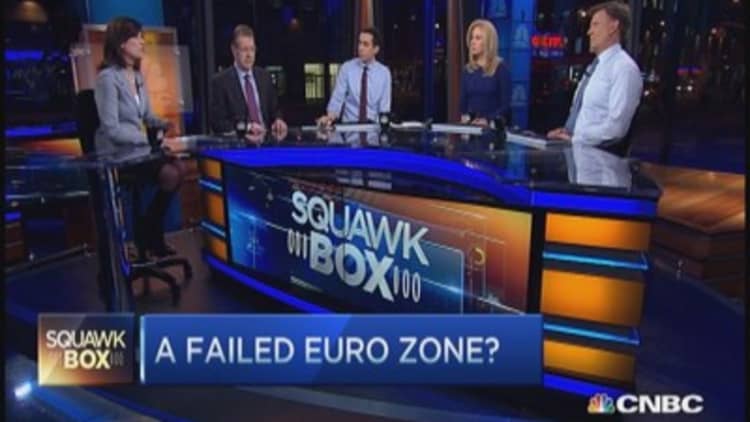
While U.S. stocks have hogged the limelight in recent years, it may be time for their "poor cousins," European equities, to shine.
The Euro Stoxx 50 – a stock index of euro zone blue chip stocks – rose just 4.4 percent in 2014, lagging the U.S benchmark S&P 500's 11.4 percent gain, as the single currency bloc grappled with slowing economic growth and the threat of recession.
Bronka Rzepkowski, euro zone senior economist at Oxford Economics, who is calling for euro zone stocks to outperform their U.S. counterparts, says her bullish outlook is based on two factors: a rebound in corporate earnings and attractive valuations on a relative basis.
"In our call of euro zone stocks outperforming U.S. ones, the outlook for profit margins is key," Rzepkowski wrote in a note published on Tuesday.
"Euro zone profit margins have not recovered since the beginning of the crisis and remain far below their 2007 peak levels. But in 2015, they are set to improve, as a weaker euro, declining commodity prices (especially oil prices) and sluggish wage growth will be supportive," she said.
In addition, low interest rates could also help margins by reducing debt servicing costs, she added.
By contrast, U.S. corporates may face a slight compression in margins given headwinds such as a stronger U.S. dollar, firmer wage growth and the possibility of rising interest rates.
"With margins potentially having passed their peak, the risk-reward for equities becomes less appealing and given unattractive valuations, investors may start to disengage somewhat," Rzepkowski said.
On a valuation basis, euro zone stocks also appear more attractive than those in the U.S., which may spur some portfolio reallocations.

"While absolute valuations are quite neutral for euro zone equities, relative valuations compared to the U.S. offer more significant support for 2015," Rzepkowski said.
While euro zone companies are trading at price-to-earnings (PE) ratio above their historical average, other valuation metrics such as price-to-book ratio and the Shiller cyclically-adjusted price-earnings ratio are well below their long-term average by 23 percent and 30 percent, respectively, according to Oxford Economics.
Read MoreCould Europe's economy be turning a corner?
The Shiller cyclically-adjusted price-earnings ratio, commonly known as CAPE, measures whether the market is fairly valued.
According to the PE and CAPE ratios, U.S. equities are trading above their long-term averages and therefore look expensive relative to their own history, according to Oxford Economics.
"Despite the massive liquidity injection by central banks since the crisis, European equity valuations do not appear over-stretched. This may point to the fact that the ECB's liquidity operations have not yet tried to boost asset prices directly," she said.
Chris Weston, chief market strategist at IG agrees European equities could play catch up this year. "One of my favorite trades this year is to be long the MSCI World ex-US ETF," he told CNBC.
This is based on expectations that U.S. stocks, after six years of gains, will underperform its developed market peers this year.
"Europe looks interesting because of competing valuations and the ECB's accommodative monetary policy. I think the ECB will have to do more than what's being modeled in financial markets," he said.
"There may be dips in European markets heading into Greek elections, but I would use pull backs as a good longer-term buying opportunity."


